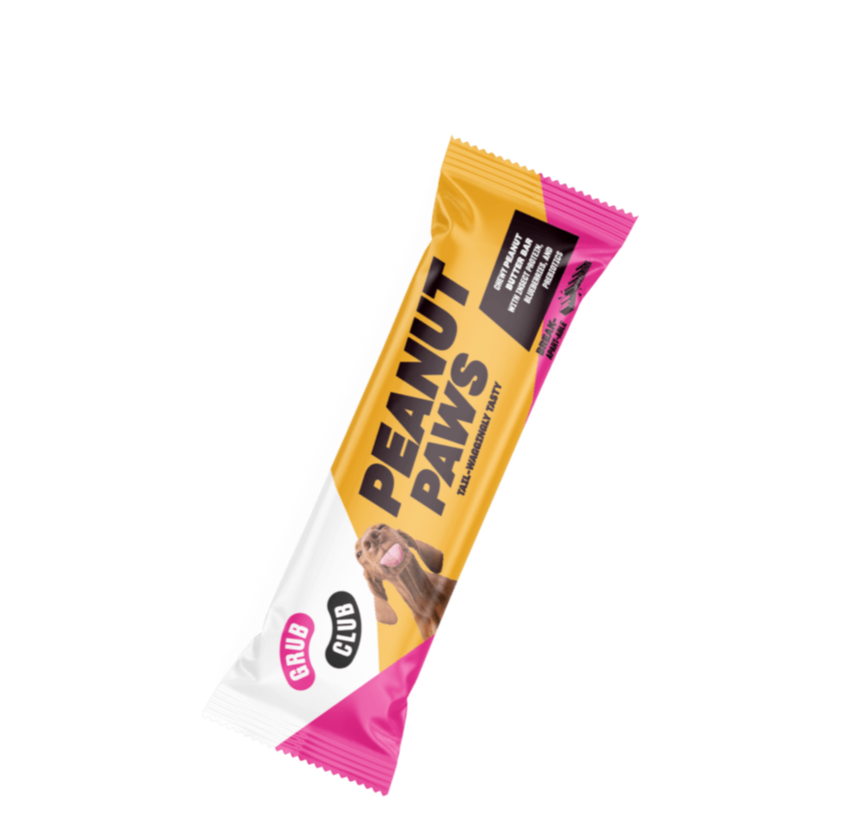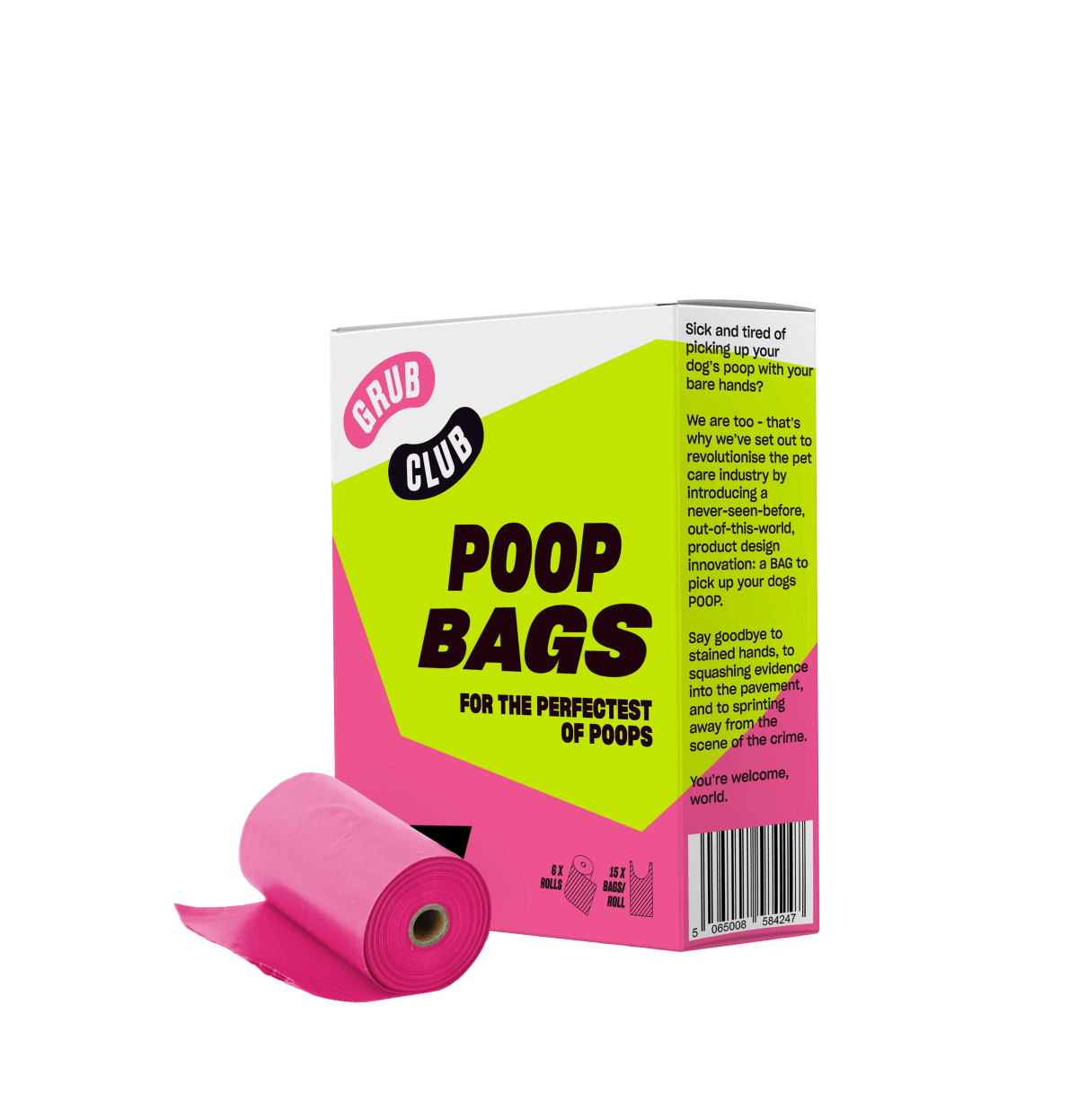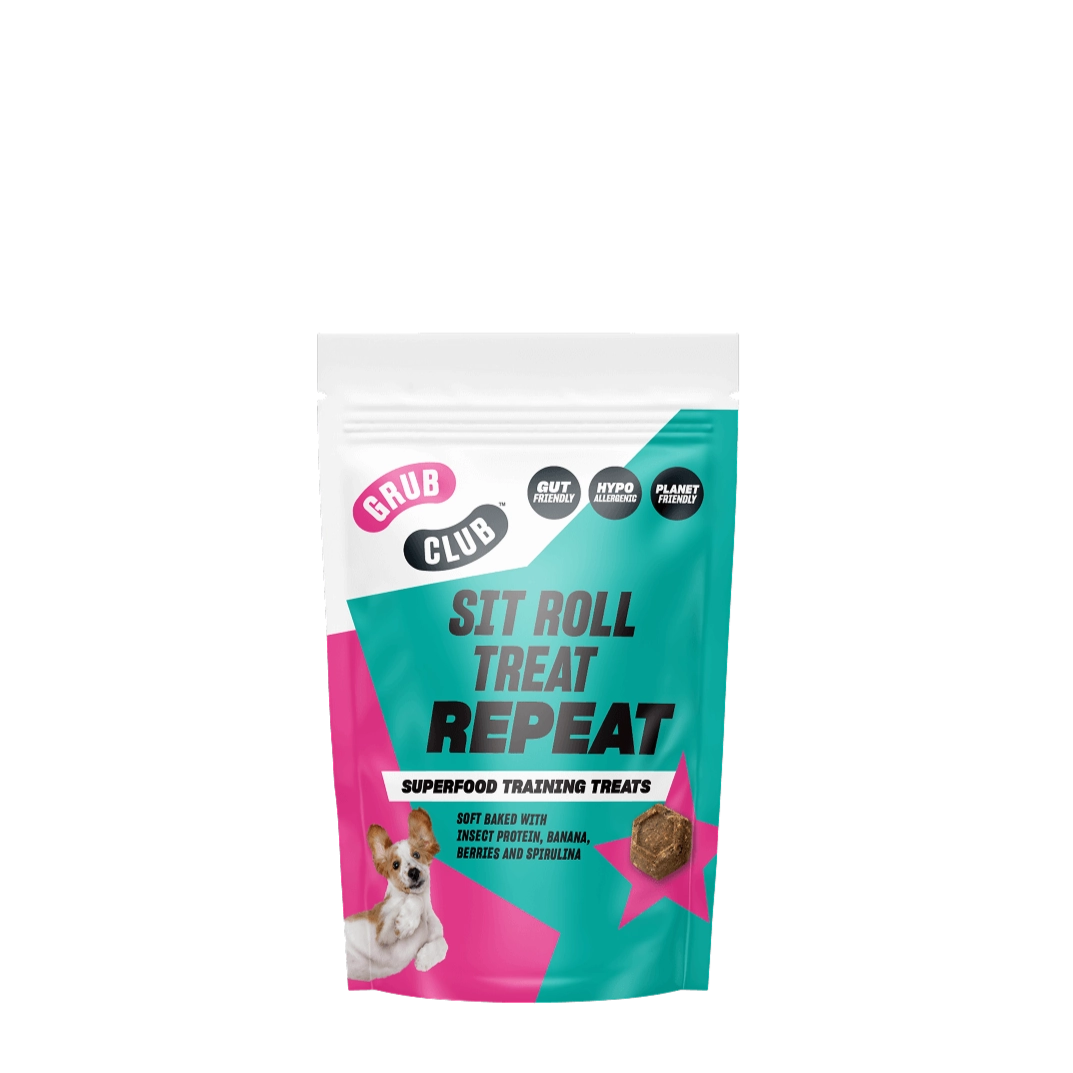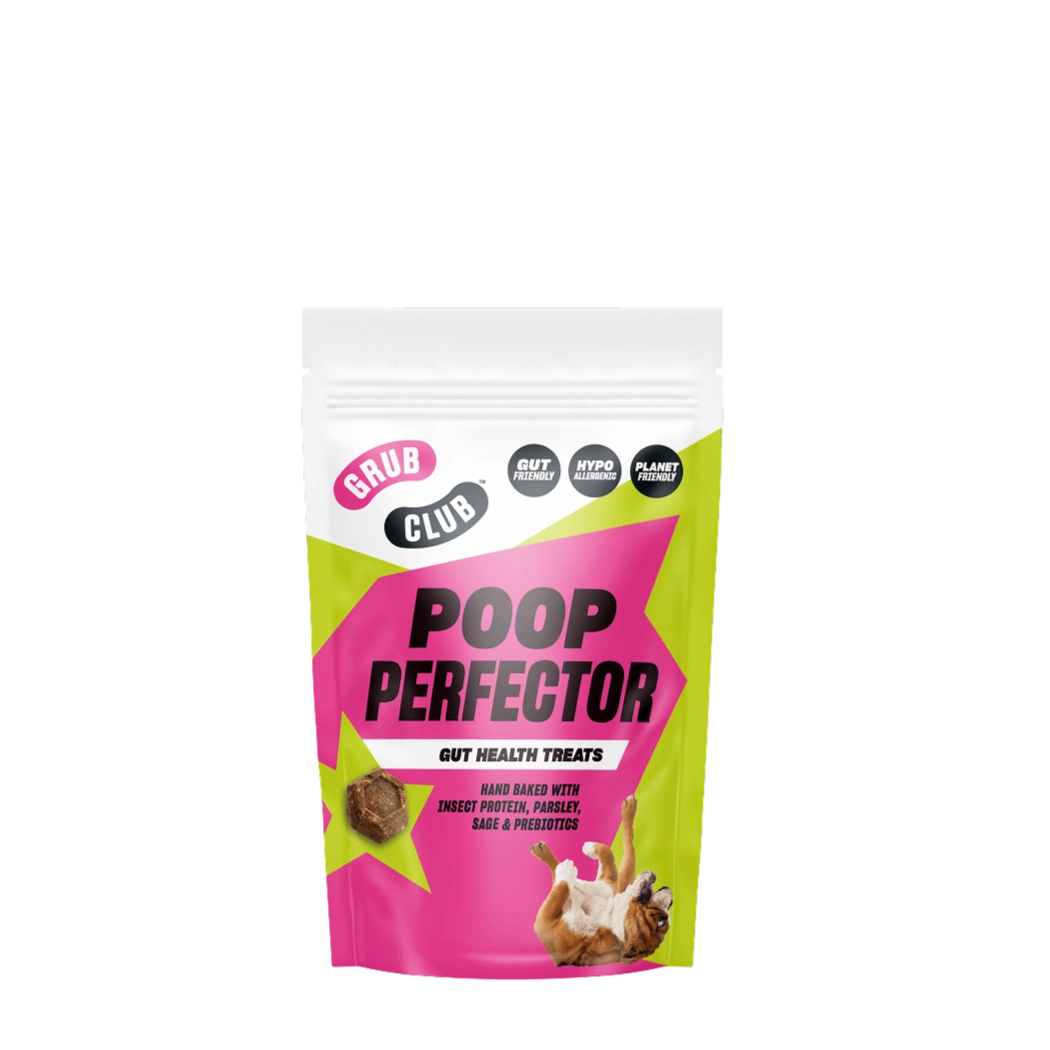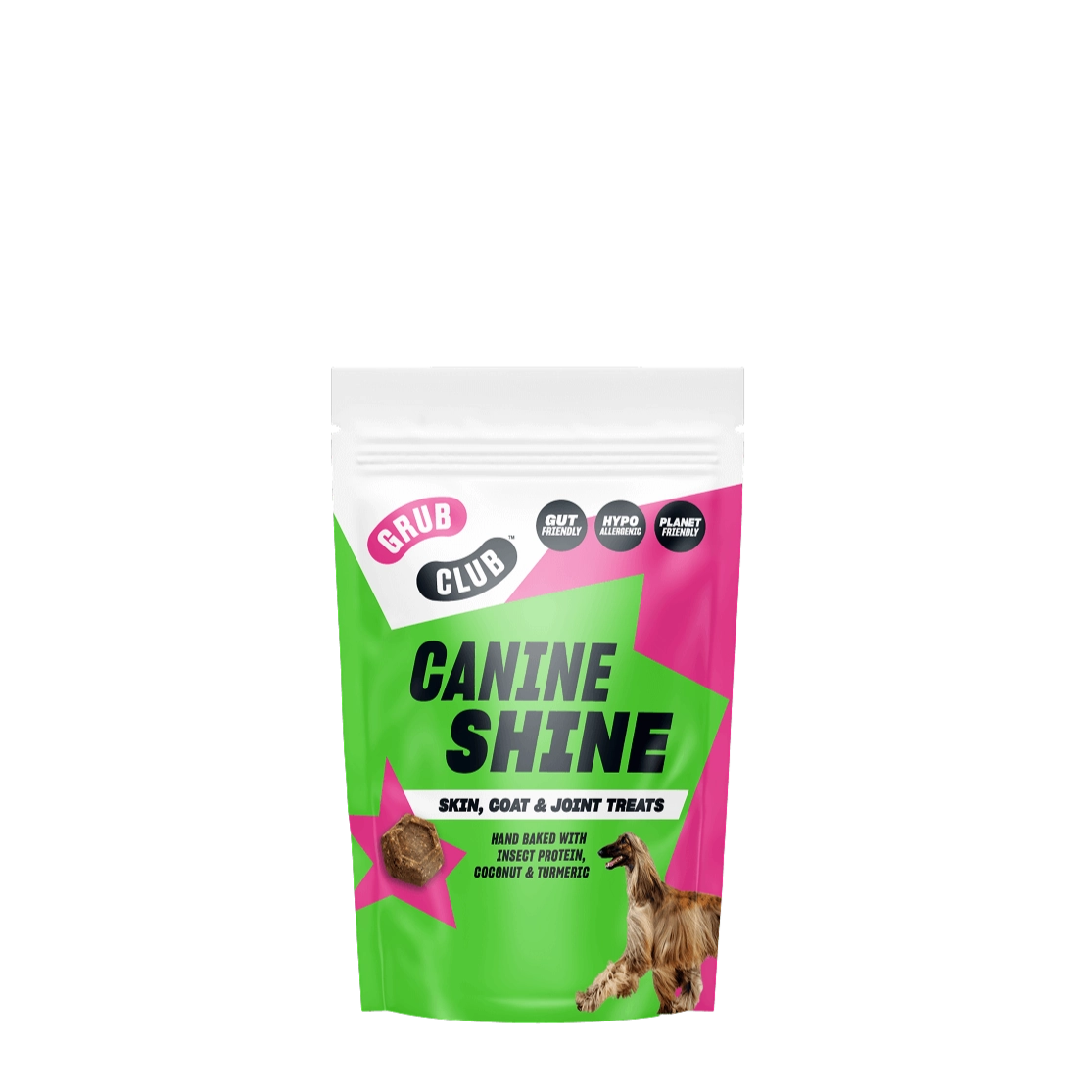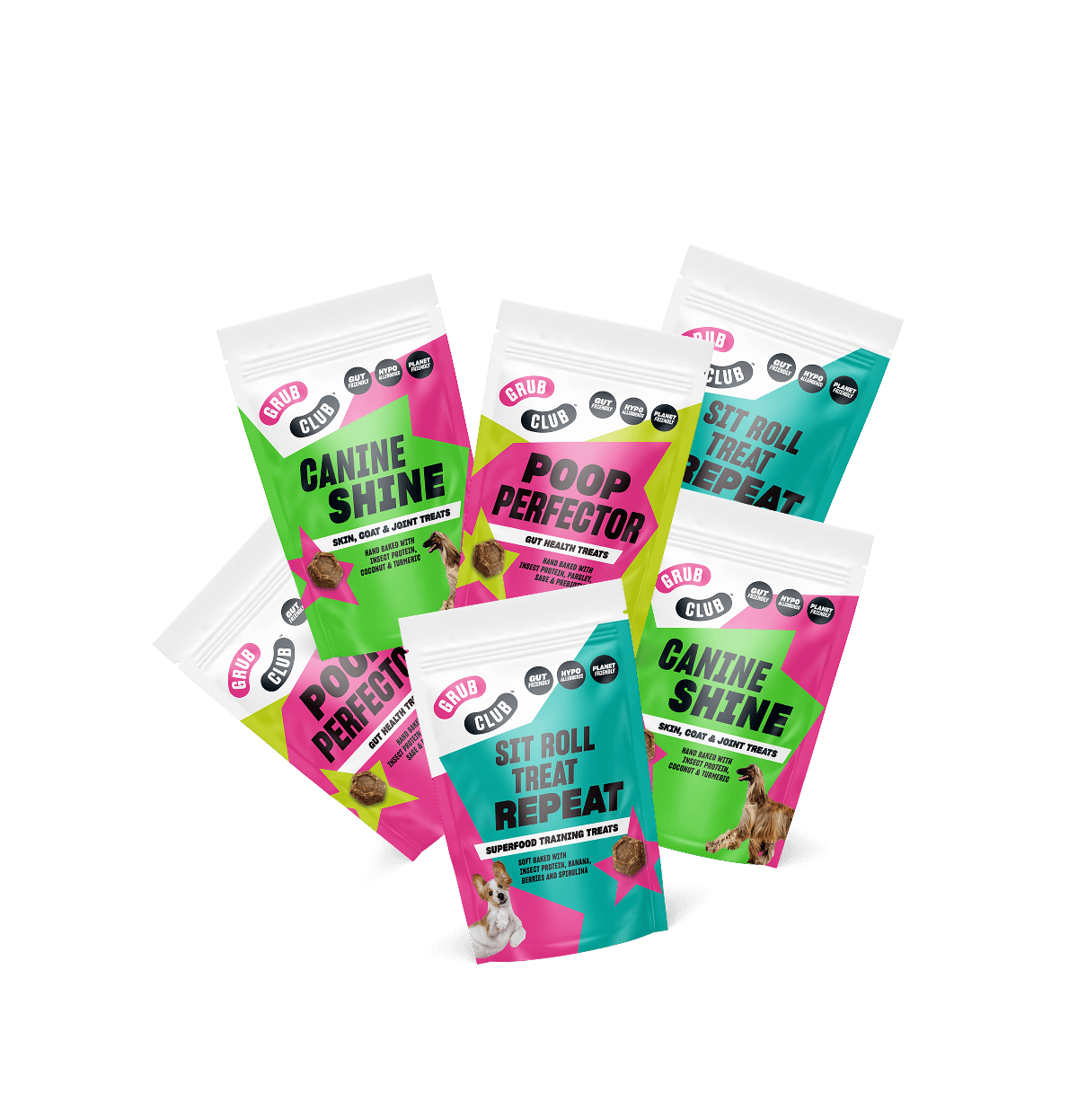Top Dog: All-In-One
Supplement for Snout-to-Tail Wellness
60 Scoops
FREE UK Delivery on orders above £49.
You have £0.00 in your cart, spend £49.00 more and get free shipping.
60 Scoops
1 Bar
72 Bags
1 Pack
1 Pack
1 Pack
Or continue without a name
CheckoutIt may come as no surprise that at Grub Club, we’re firmly not on Team Meat. But hey, we like to think we’re decent people so we’re here to give you a balanced argument when it comes to choosing the best option for your dog (because we’re always Team Dog).
However before we get started, it is worth noting that our pets account for a whopping 20% of the world’s meat and fish consumption. Yes, really. Meat production can have harmful effects on the planet’s water and land resources and is one of the biggest contributors to global warming. Scary stuff.
The myth: Dogs are like wild wolves and need a hunky meat-based diet.
The reality: Dogs are more than capable of surviving (and thriving) without any traditional meat at all. *louder for those in the back* Dogs do not need to survive on meat to have a nutritious diet.
In short, yes. Here’s why:
When opting for a meat-free diet for your dog, you predominantly have two options: a vegan/vegetarian diet or making the switch to insect protein instead. Let’s explore the pros and cons of both.
A vegetable-based diet for dogs is generally well tolerated by our canine pals. Dogs can happily live on a vegan-based diet due to it being naturally low in fat (great for dogs suffering from obesity) and rich in fibre (wave goodbye to runny poops). It’s also a much cleaner way to feed your pooch (no bacteria lying around from raw meat) and it is far more sustainable for the planet.
Just like humans, every dog is unique and in very few cases, there may be dogs allergic to certain vegan food products. For example, a very small percentage of dogs may be allergic to ingredients such as sweet potato, pea protein and fruit such as blueberries. However, allergies relating to vegan/vegetarian ingredients are far less common than allergies linked to animal products.
When shopping around for dog food, you might see the term ‘nutritionally complete’. This means the dog food provides balanced nutrition for everyday feeding. AKA… You don’t need to feed your dog anything else other than their dog food to provide them with the nutrients they need to keep healthy.
Many vets and animal nutritionists suggest that vegan diets for dogs can carry a significant risk of potential dietary deficiency. The six basic nutrients your dog needs are water, proteins, fats, carbohydrates, minerals, and vitamins. These essential nutrients are required as part of the dog’s regular diet and are involved in all of the basic functions of the body. A lack of a nutritionally balanced and complete diet can have lasting effects including heart issues for larger breed dogs, such as canine dilated cardiomyopathy.
Dietary deficiency can be avoided with careful planning and preparation. Whilst there are some vegan kibble brands around (good for busy lifestyles), surviving on just vegetables and fruit alone can put your dog at risk of malnutrition.

The insects mostly commonly used in bug-based dog food are crickets and fly larvae.
Here at Grub Club, we use the larvae from the Black Soldier Fly (Hermetia illucens). As one of nature’s most efficient up-cyclers, these grubs are a much-needed sustainable protein source for an ever-expanding human population as well as all our furry friends. What’s amazing is that, in one year, a single acre of black soldier fly larvae can produce more protein than 3,000 acres of cattle. Each grub is effectively a little protein powerhouse.
We feed our grubs on organic plant-based matter. This process is incredibly efficient and requires a fraction of the land area and water that traditional livestock would need. It’s also completely zero waste.
UK and EU legislation permits the inclusion of insect protein in pet diets and our BSF larvae are recognised by the British Veterinary Association for use in pet food. And no, it doesn't look like bugs! Just your ordinary kibble (with insect protein superpowers).
Either way, if your dog enjoys the taste, your chosen method of feeding is nutritionally complete, and your dog does not suffer with any allergies relating to their food, then great. Happiness and health is what we all want for our dogs right?
But feeding your dog raw meat can carry significant risks to both human and animal health due to potential for bacterial and parasitic infections such as salmonella, campylobacter, mycobacteria and toxoplasma - to name a few. You can pick up these nasty bugs by contamination of surfaces, food bowls and through your dog licking your hands and face. Yuck!
Feeding your dog meat can also be typically more expensive than feeding your dog kibble and it’s time consuming to prep and clean afterwards. Oh and did we mention that our pets account for a whopping 20% of the world’s meat and fish consumption?

